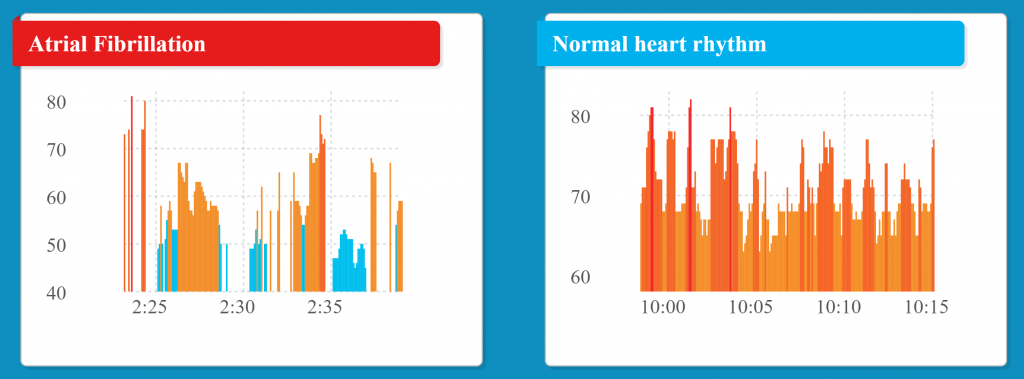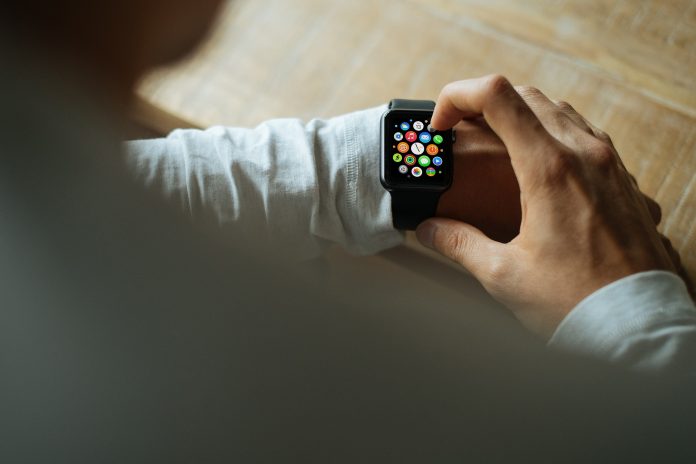A new study shows the Apple Watch can listen to your heartbeat with enough accuracy to tell if you have heart disease. Heart health app Cardiogram and researchers from the University of California, San Francisco (UCSF) Cardiology Health eHeart project came together to train the watch to sense abnormal heart rates that indicate the person has atrial fibrillation (AF), a heart disease which can lead to stroke.
AF increases a person’s risk for stroke by four to five times and contributes to an estimated 130,000 deaths each year in the U.S., according to the Centers for Disease Control and Prevention. So this finding could spell a major breakthrough in both preemptively identifying sufferers and monitoring treatment.
“Our results show that common wearable trackers like smartwatches present a novel opportunity to monitor, capture and prompt medical therapy for atrial fibrillation without any active effort from patients,” said the report’s senior author Dr. Gregory M. Marcus, according to Apple Insider. “While mobile technology screening won’t replace more conventional monitoring methods, it has the potential to successfully screen those at an increased risk and lower the number of undiagnosed cases of AF.”
To come up with the algorithm, the study took 139 million heart rate measurements from 6,158 Cardiogram app users. They then plugged that data into a deep neural network to learn how to distinguish atrial fibrillation from normal heart rhythm in the test patients. Once it learned the difference, it was able to detect the heart condition with 97 percent accuracy, beating existing methods of diagnosis, Cardiogram software engineer Avesh Singh stated in a blog post.

What this means for the future
This latest study proved equipment like the Apple Watch is capable of detecting abnormal heartbeats like a smart stethoscope. Cardiogram’s next step is to get the app to provide actionable advice about what watch wearers should do once an irregular heartbeat is detected, a move that will likely require getting FDA approval.
“In the future, you could imagine Cardiogram sends you a notification: ‘We noticed an abnormality in your heartbeat. Want to chat with a cardiologist?’” Singh wrote.
It may take a while before we get to that point but Cardiogram co-founder, Brandon Ballinger, is optimistic we’ll get there in several more years. He pointed out Apple Watch wearers are already using current heart rate data to make potentially life-saving decisions to seek medical attention. This new study will take the Apple Watch one step further to becoming a full-fledged medical device for us to wear.











